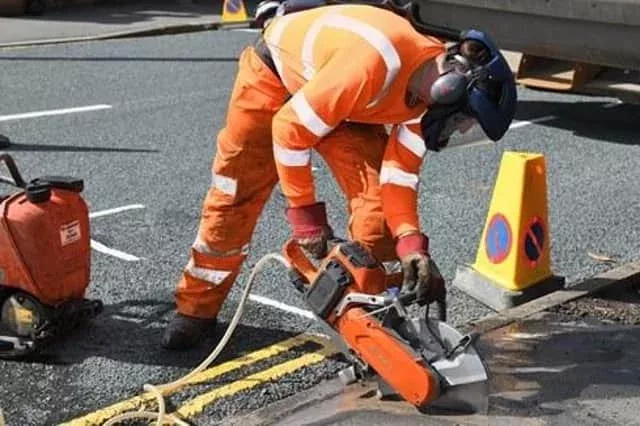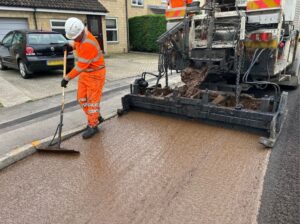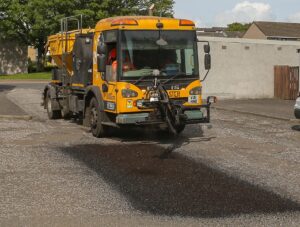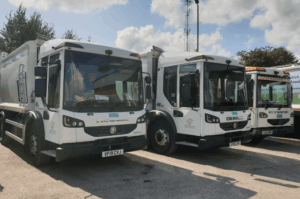More carbon efficient ways of repairing the roads are being trialled by East Riding of Yorkshire Council’s highways team.
The team has embraced the latest methods and equipment in order to lower the carbon footprint of the improvements it makes to the area’s many roads, including the repair of potholes, reports the Scarborough News.
The processes allow for cleaner, safer working environments and include:
- A current trial of electric, battery-powered work tools, producing no emissions and creating less noise, instead of using traditional equipment powered by generators and fuel.
- Using the surplus loose stone chippings that have been cleared up from roads recently surface dressed – where chippings are laid to improve roads and protect against potholes and other damage.
- The chippings are recycled and reused in the mending of roads, reducing the need to use raw materials.
- Trying out new road surface materials – one which produces less CO2 and saves energy as it needs no heating on site and is designed to make repairs last even longer and produce less waste.
Low-carbon techniques have already been used to good effect in road improvements, most recently along Walkington Heads, a 1.6mile stretch of country road near Beverley.
The road was resurfaced using a new carbon-reducing system. The surface material was removed to a substantial depth, before being recycled and relaid.
The scheme saved around 240 tonnes of carbon compared to traditional methods – the equivalent of burning around 92,000 litres of petrol.
Councillor Paul West, portfolio holder for environment and transport said: “Our highways team has shown great commitment to using new, greener equipment and ways of working.
“They are trialing more low-carbon and recycling techniques on road maintenance schemes across the East Riding in order to reduce the need for more raw materials, cut emissions and have less of an impact on the environment.
“The team is constantly looking at innovative ways to improve repairs and make local roads better for everyone.”





















